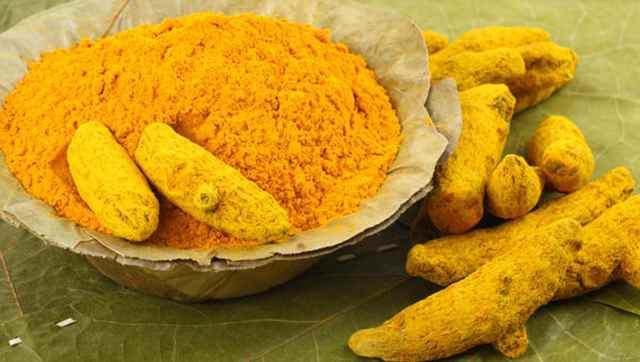Berberine – Powerful Medicine for Modern Chronic Diseases

Berberine may be the key to reducing the incidence of chronic diseases in future generations. By modifying genetics and gene expressions as well as decreasing inflammation and modulating a multitude of other physiological processes in the body, berberine shows promise in the treatment and prevention of chronic disease and cancer.
Berberine is an alkaloid found naturally in the roots of certain plants, including European barberry, goldenseal, goldthread, Oregon grape, and several others. As a bitter that affects the gut microbiome and mycobiome, it has the capacity to optimize immune function as well as treat gut infections.
Hundreds of recent studies have focussed on the benefits of Berberine in controlling plaque formation in heart disease, and blood sugar and insulin stabilization in diabetes type II. It can induce weight loss, reduce blood pressure and cholesterol, improve memory, reduce amyloid plaques in Alzheimer’s, and modulate cancer expression and disease progression in some of the most aggressive cancers. Berberine has been shown to be more effective than Metformin in treating insulin resistance, type II Diabetes, and high cholesterol without the side-effects associated with Metformin.
Research on colon cancer, glioblastoma, nasopharyngeal cancer, leukemia, lung cancer, hormone related cancers, and many others, have shown berberine to be a powerful inhibitor of cancer cell proliferation, cancer stem cells and cancer growth.
The research on berberine is just at it’s beginnings, demonstrating its benefits in reducing risks for many modern chronic disease. More importantly, the studies demonstrate its effects on modulating gene and genetic expression. Genetic modulation by berberine could mean that it may have the power to alter the prevalence of chronic disease in future generations as the current generations utilize this powerful herbal extract to modify and prevent disease processes. Your physician can run some tests to evaluate you for certain genes that not only predispose you to some of these chronic diseases but to check to see if Berberine will be an effective treatment for you.
Berberine is not necessarily for everyone as some adverse effects are possible. Berberine may cause nausea, diarrhea, and too low of a blood sugar in some people.
“The skillful physician does not give the same medicine to cure each disease and each malady, but he changes remedies and medicines according to the different necessities of the diseases and constitutions.”
(‘Abdu’l-Bahá. Some Answered Questions, p 108)
Please consult your Holistique physician to see if berberine is the powerful medicine for you. Each person is unique and each requires a unique and individualized treatment. Call Holistique (425)-451-0404 for a consultation.
References:
- Tatyasaheb Patil1 et al. Review Article *Author for Correspondence Is Berberine Superior to Metformin in Management of Diabetes Mellitus and its Complications? www.ijppr.com International Journal of Pharmacognosy and Phytochemical Research 2015; 7(3); 543-553 ISSN: 0975-4873
-
Hong M1, Tan HY2, Li S3, Cheung F4, Wang N5, Nagamatsu T6, Feng Y. Cancer Stem Cells: The Potential Targets of Chinese Medicines and Their Active Compounds.Int J Mol Sci. 2016 Jun 7;17(6). pii: E893. doi: 10.3390/ijms17060893.
-
Jiarong Lana, b, 1,Journal of Ethnopharmacology. Meta-analysis of the effect and safety of berberine in the treatment of type 2 diabetes mellitus, hyperlipemia and hypertension Volume 161, 23 February 2015, Pages 69–81 http://dx.doi.org/10.1016/j.jep.2014.09.049
- Kazunori Fukuda. Inhibition by berberine of cyclooxygenase-2 transcriptional activity in human colon cancer cell. Journal of Ethnopharmacology Volume 66, Issue 2, August 1999, Pages 227–233 http://dx.doi.org/10.1016/S0378-8741(98)00162-7
-
Liu Q1, Xu X1, Zhao M1, Wei Z1, Li X1, Zhang X1, Liu Z1, Gong Y1, Shao C2. Berberine induces senescence of human glioblastoma cells by downregulating the EGFR-MEK-ERK signaling pathway. Mol Cancer Ther. 2015 Feb;14(2):355-63. doi: 10.1158/1535-7163.MCT-14-0634. Epub 2014 Dec 12.
- Zhiyou Ca et al. Role of berberine in Alzheimer’s disease. Neuropsychiatr Dis Treat. 2016; 12: 2509-2520.doi: 10.2147/NDT.S114846 PMCID: PMC5055107
-
Xin-xia Chang et al. The effects of berberine on hyperhomocysteinemia and hyperlipidemia in rats fed with a long-term high-fat diet. Lipids in Health and Disease 201211:86 DOI: 10.1186/1476-511X-11-86 © Chang et al.; licensee BioMed Central Ltd. 2012. https://lipidworld.biomedcentral.com/articles/10.1186/1476-511X-11-86
-
Junwen Chen et al. Berberine derivatives reduce atherosclerotic plaque size and vulnerability in apoE−/− mice. Journal of Translational Medicine 2014 12:326 DOI: 10.1186/s12967-014-0326-7 https://translational-medicine.biomedcentral.com/articles/10.1186/s12967-014-0326-7

Dr. Nooshin K. Darvish is a Washington board-licensed Naturopathic Doctor, certified in Anti-Aging and Regenerative Medicine with a Fellowship in Integrative Cancer Therapies. She is the founder and Chief Medical Officer of Holistique Naturopathic Medical Center and Holistique IV Lounge, and the author of "The Golden Gate". A 1995 graduate, former Chief Resident, and Affiliate Faculty of Bastyr University, with more than 30 years of clinical practice, Dr. Darvish practices Regenerative, Naturopathic, and Integrative medicine with a passion to assist patients in their transformation towards physical, mental, emotional, and spiritual wellness. As a physician, author, educator, lecturer, and a TEDx speaker, her mission is to inspire others to become 'agents of transformation'.
